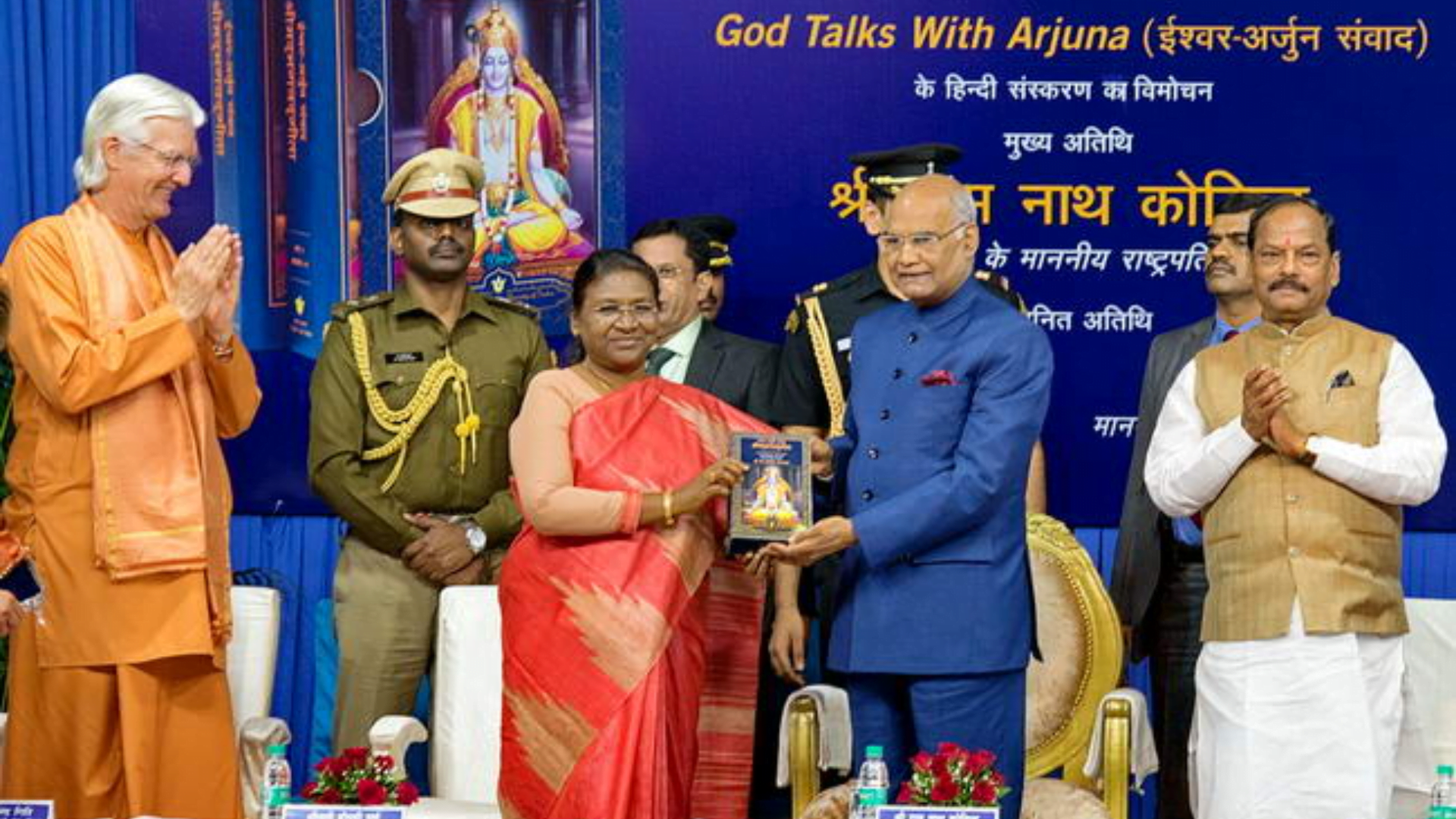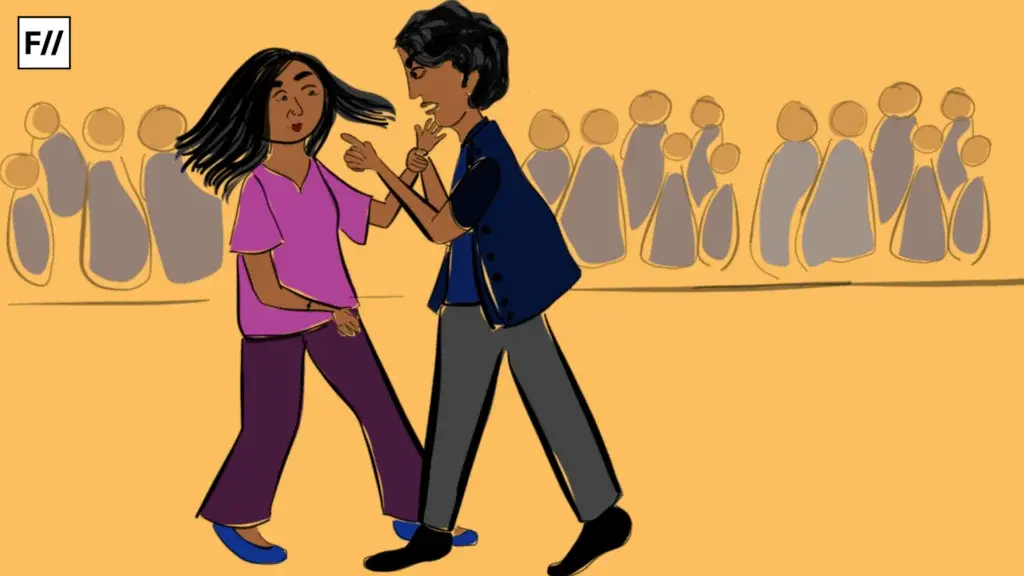Narendra Modi launched his ambitious Swachh Bharat Mission on Gandhi Jayanti in 2014. Aimed at making India scavenger-free by 2019, the Mission completely ignored the demands of the people who had been campaigning to urge the state to implement its own law, The Employment of Manual Scavengers and Construction of Dry Latrines (Prohibition) Act 1993. In Republic of Caste, Anand Teltumbde remarks that the beginning of Modi’s cleanliness drive from the Valmiki Colony as part of the Mission’s launch reinforced the association between Valmikis and scavenging, thereby preserving — instead of refuting — the network of caste in the conversation on cleanliness.
Focussed on the construction of toilets to discourage and prevent open defecation, the Mission arrogantly neglected how the cleanliness of toilets, old or new, was still delegated to contractors who employed manual scavengers on grossly low salaries.
Narendra Modi launched his ambitious Swachh Bharat Mission on Gandhi Jayanti in 2014. Aimed at making India scavenger-free by 2019, the Mission completely ignored the demands of the people who had been campaigning to urge the state to implement its own law, The Employment of Manual Scavengers and Construction of Dry Latrines (Prohibition) Act 1993. In Republic of Caste, Anand Teltumbde remarks that the beginning of Modi’s cleanliness drive from the Valmiki Colony as part of the Mission’s launch reinforced the association between Valmikis and scavenging, thereby preserving — instead of refuting — the network of caste in the conversation on cleanliness.
This year, the Modi-led BJP nominated Droupadi Murmu, an Adivasi woman, for the position of the President of India. She won the presidential elections on July 21. Murmu’s appointment appears to have impressed even seasoned critics of BJP’s policies and agendas. So has its announcement of Jagdeep Dhankar as NDA’s candidate for Vice President. The two developments are being viewed as the party’s attempt at fostering diversity and promoting inclusion, ideals that are not expected from another political party like, say, Congress, whose poster boy, Rahul Gandhi, continues to serve as a reminder of elitism in politics.
In endorsing Murmu’s nomination and her eventual appointment, many seem to have forgotten that BJP’s recent endeavours are superficial measures to garner publicity for its diversity rather than extend actual support to the Adivasi community. The Swachh Bharat Mission’s unwillingness and inability to accommodate the demands and concerns of the communities that are urgently impacted by sanitary practices reveals what is actually a pattern of disregard. BJP continues to perceive caste as a non-issue until it needs to exploit the language of inclusion to secure acclaim, as is precisely the case with its nomination of Murmu.
In October 2016, for instance, the police opened fire on tribal people in the Khunti district in BJP-led Jharkhand when they were on their way to join a protest against two ordinances in land and tenancy laws that they perceived as a measure aimed at their disenfranchisement. This was the third incident since August 2016, as pointed out by T.K. Rajalakshmi. When tribal people refused to cremate the body of the person who had died in the firing, clashes with the administration escalated, resulting in over 1500 people getting booked under several cases. Meanwhile, Modi inaugurated the first national tribal festival in Delhi in the same month.
In endorsing Murmu’s nomination and her eventual appointment, many seem to have forgotten that BJP’s recent endeavours are superficial measures to garner publicity for its diversity rather than extend actual support to the Adivasi community. The Swachh Bharat Mission’s unwillingness and inability to accommodate the demands and concerns of the communities that are urgently impacted by sanitary practices reveals what is actually a pattern of disregard. BJP continues to perceive caste as a non-issue until it needs to exploit the language of inclusion to secure acclaim, as is precisely the case with its nomination of Murmu.
The state’s assault on tribal people is now relatively well known. Published in My Seditious Heart, Arundhati Roy’s “Walking With The Comrades” exhibits how the state’s Hindutva drive changes the names of villages in land records and of people on voters’ lists. Massa Karma, for instance, became Mahendra Karma. Roy writes, “Those who did not come forward to join the Hindu fold were declared “Katwas” (by which they meant untouchables) who later became the natural constituency for the Maoists.”
But state response to tribal communities isn’t limited to nomenclative changes, as serious as the invasive attempt is. Hundreds of thousands of tribal people have been evicted from tiger reserves owing to concerns pertaining to conservation, which is rather absurd since evidence proves that protecting tribal rights is integral to countering climate change.
The BJP’s primary goal to bring about a Hindutva India demands co-optation and prohibits change. Its current endeavour to position tribal voices at the forefront is a short-lived mask of representation to seek missing tribal votes. Possibilities of a new future for Adivasis cannot materialise unless Hindutva and its investment in the preservation of caste is seriously challenged.
In February 2019, following a petition by conservation groups, the Supreme Court sanctioned the eviction of roughly 8 million indigenous people. Alluding to the Supreme Court order and the leaked draft of the BJP’s amendments to the 1927 colonial Indian Forest Act, Jonathan Mazower explains how BJP’s re-election in 2019 directly contributed to the escalation of the ongoing war on tribal communities. The proposals, Mazower explains, prohibited the arrest of forest officers without an investigation and inhibited state governments from urging an inquiry “without constituting an inquiry under an executive magistrate.”
Such measures provided forest officials with greater impunity, enabling them to shoot people without any accountability. The BJP’s active interest in violating tribal rights regularly finds expression in its draconian agendas to usurp tribal land for state and corporate interests.
Further, when an alliance of BJP and PDP was in power in Kashmir between 2015 and 2018, BJP opposed the tribal affairs ministry’s proposals on tribal policy in the state in 2017 and 2018 by claiming that it would jeopardise the forests. The policy proposed the ‘development’ of tribal people without direct interference in their culture. BJP’s opposition safeguarded the rights of Gujjars and Bakerwals, two predominantly Muslim tribal communities.
Interestingly, in 2019, BJP extended the 2006 Scheduled Tribes and Other Forest Dwellers (Recognition of Forest Rights) Act following the abrogation of Article 370. Accordingly, it implemented precisely what it had opposed earlier.
The process of saffronising tribal people has thrived alongside an explicit attempt to displace or exterminate them, as is clear from the aforementioned examples. Last year, for instance, BJP extended financial assistance of Rs. 5000 per person in Gujarat to help tribal people visit the Ram Mandir in Ayodhya. Today, Indians are expected to applaud the BJP for spearheading inclusion in politics by virtue of its presidential and vice-presidential nominations.
Given BJP’s consistent assault against tribal people, Murmu’s appointment is, first and foremost, yet another technique of saffronisation which has been weaponised to commodify and exploit calls for diversity in an era that is increasingly conscious of representation.
To understand representation, we must turn to Teltumbde, who examines the lynching of Surekha Bhotmange and her children in Khairlanji in 2007, to issue an important warning: “Almost the entire state machinery—from the district police chief, the inspector of the local station to the doctor who performed the postmortem—was staffed by Dalits, most of them belonging to the same subcaste as the victims. Not only did they remain inert, some of them made matters worse. This should make Dalits sit up and rethink the logic of representation that has been the pivot of their movement.”
Before we glorify Murmu’s appointment in the language of intersectional feminism, remember that when a young Muslim girl belonging to the nomadic Bakarwal community in Kathua was gang-raped and murdered by six Hindu men and a juvenile in 2018, two BJP ministers attended the ‘protest’ in support of the accused. Local BJP leaders demanded a CBI probe as they felt that the arrests had been made under political pressure. Madhya Pradesh BJP President Nandkumar Singh Chouhan blamed militants from Pakistan for the rape and murder. BJP has, rather evidently, never stood for intersectionality; its commitment is limited to Hindutva, which, if anything, counters intersectional approaches and ways of thinking. The goal is and has always been Hindu consolidation.
A few days back, the Union culture minister and BJP member G Kishan Reddy disclosed the Archaeological Survey of India’s conduction of a DNA study of 75 tribal communities. The study’s outcome can promote eugenicist policies surrounding population control, impact Adivasis’ claim to cultural space, and contest the legitimacy of science. Reflect on other possible outcomes of such a study and ask: to what extent can Murmu utilise her appointment as the nominal head of state to support and enforce policies that are productive for tribal communities?
Also read: Why Must Hate Speech Against Muslims In India Be Condemned?
The BJP’s primary goal to bring about a Hindutva India demands co-optation and prohibits change. Its current endeavour to position tribal voices at the forefront is a short-lived mask of representation to seek missing tribal votes. Possibilities of a new future for Adivasis cannot materialise unless Hindutva and its investment in the preservation of caste is seriously challenged.
Also read: ‘Hindutva Feminism’ And Its Rhetoric Of Hatred & Exclusion
Featured image source: Yogada Satsanga Sakha Ashram
About the author(s)
Mridula Sharma is a researcher and a writer. Her work lies in the intersection of feminist theory, postcolonial studies, and popular culture.





